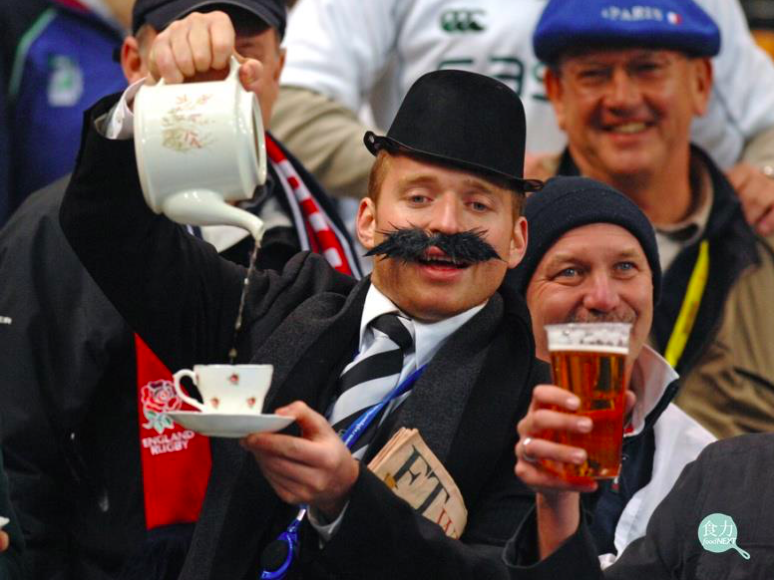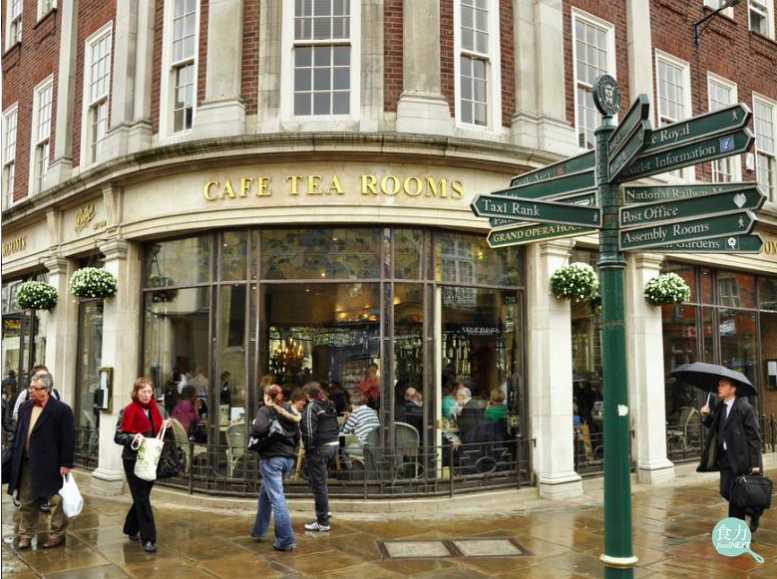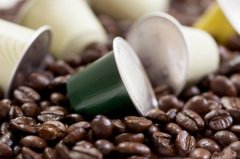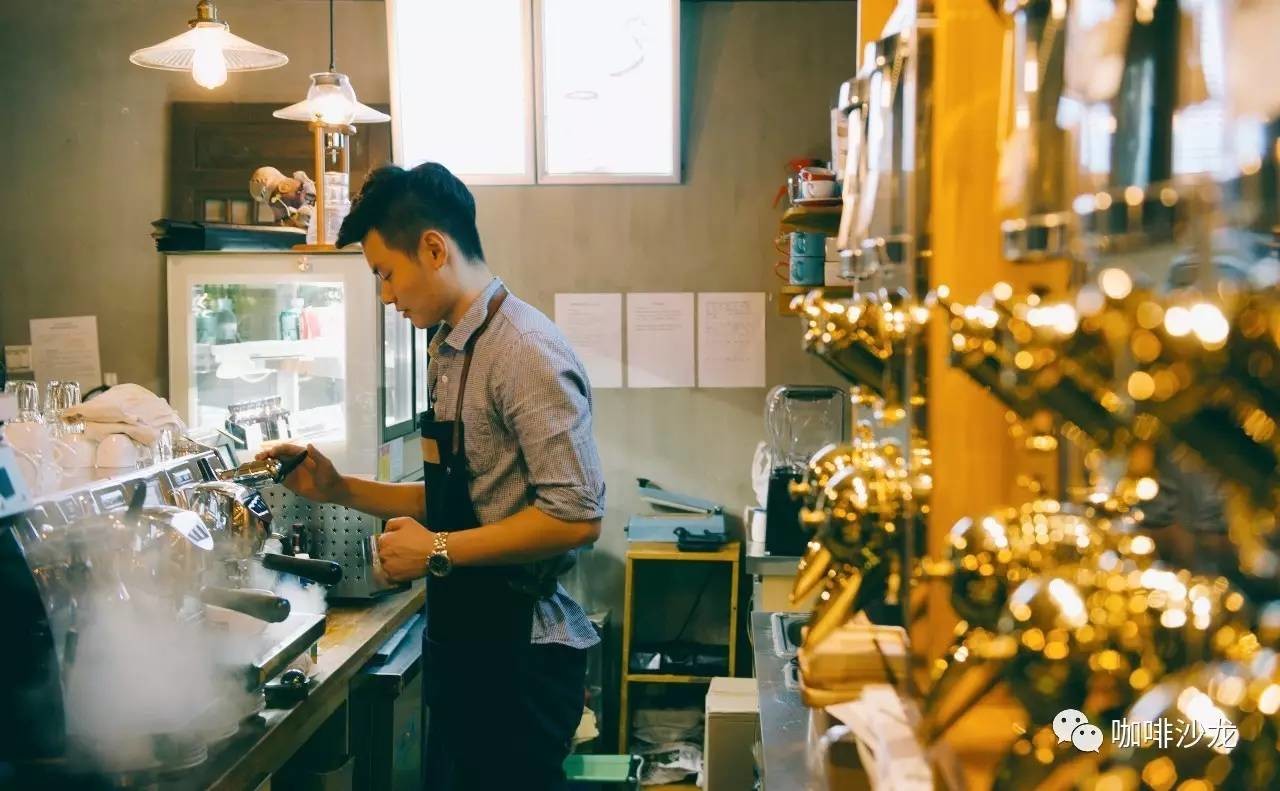Young people prefer coffee to tea, and British afternoon tea culture is disappearing.

Food you should know.
According to the National Food Survey, Britons 'love affair with tea is fading fast, with Britons aged over 50 drinking an average of 876 cups a year, but young people averaging less than two cups a week.
Coffee, Tea, or Tap water? The British are less fond of tea...
Beginning in 1720 AD, the tea that is popular today appeared in England-black tea with milk and sugar. Before that, green tea imported from China was popular in Britain and Europe, and Britain was the first to sell it through London cafes. It wasn't until the 18th century, when sugar began to be imported, that the British green tea habit was replaced by a wave of black tea with milk and sugar.
Centuries ago, the idea of green tea from a medical and health point of view evolved into a modern cultural idea of socializing. However, modern Britons in 2016 are drinking less tea than they used to. Now British afternoon tea or social drinks, to stimulate and strong taste of coffee, at least a day will come on one or two cups of coffee. What caused Britons to go from at least three or four cups of tea (black tea and milk) a day to less than two cups a week on average?
From the UK National Food Study Britons 'love affair with tea began to wane in the 1970s, according to a recent National Food Survey. After World War II, tea consumption peaked, and young Britons (aged 16 to 4) are now enjoying tea at half the rate of the post-war baby boomers. The survey found that respondents over the age of 50 still maintain the habit of drinking tea, with an average of more than 3 cups per day. Compared with the statistics of another survey "YouGov", Britons over the age of 50 drink an average of 876 cups of tea a year, which is equivalent to two bathtub capacity!
British people have become less fond of tea, probably because of differences in taste and "psychological feelings". Coffee has a strong taste, just like caffeine, but it is short-lived and stimulating. Tea, on the other hand, makes people feel at home, comfortable and mild in taste and psychology. Although some British people still want a cup of tea when they are not feeling well, considering black tea, caffeine is too high, and the bland taste is also boring.
The British tea culture of the 20th century was influenced by the invention of the "tea bag" in the United States, which was convenient and fast. A large number of sales of tea bags, instant tea companies into a lot of accounts, so far a variety of brand tea bags, still occupy every household kitchen cabinet (only drink less times), tea bags occupy more than 96% of the market. Just press the kettle switch, drop in the tea bag, pour in hot water, add milk, a little sugar (modern Britons prefer brown sugar, Brown Sugar; most don't add sugar), a cup of tea strong, two minutes.
Just tea bags, let the quality of tea greatly reduced, cheap or ultra-cheap tea bag brands, may contain inferior tea, even just tea fragments or powder, but also because a tea bag reduces the tea intake capacity (about 3 grams), tea bags are retail good sales. Of course, no one pretends to drink premium tea.
British organic supermarkets or higher-priced supermarkets (such as Waitross or Mark&Spencer), there are several tea bag brands in addition to classic black tea varieties (classic breakfast tea, Earl Grey tea, Darjeeling, Assam, etc.), mint tea, South African national treasure tea (Rooibush), Indian spice tea (Chai), or chamomile tea or pomegranate tea, also with health appeal, focusing on the supermarket corresponding customer level.
Although black tea is not low in caffeine, tea is high in tea tannin antioxidants, and moderate amounts of tea (with little or no added sugar) can reduce the risk of cardiovascular disease, according to a new study by the American Heart Association in March.
To make a good English milk tea, do you add milk or black tea first? This question even the Japanese are very sophisticated and confused, in addition to black tea milk fragrance, the British "correct tea, bubble good tea", must first add milk. The procedure is as follows:
Step 1: Water, mainly soft water. British tap water needs to be filtered to be soft; mineral water does not count!
Step 2: Add the filtered water to the kettle and heat the teapot separately. Add at least a quarter of the water and heat in a microwave or boiling kettle. Avoid iron pots, use ceramic teapots to preserve tea aroma).
Step 3: After boiling, just add about a teaspoon (about 2 grams, not too much) of tea leaves. Do not use tea bags here. The whole package of tea leaves has a higher concentration of tea tannins. Pour in boiling water and wait 3 minutes.
Step 4: Use your favorite cups and mugs. First pour in the right amount of milk in the cup, mainly cold fresh milk, do not need to heat. The reason why milk stays in the cup first is that if milk is poured into hot tea above 75 degrees, the milk droplets poured into the process (milk protein in the middle) will be destroyed by high temperature; it tastes worse than hot tea added to milk (dense milk protein, milk protein destruction process is slower).
Step 5: Pour hot black tea into milk. The darker the color, the higher the concentration of black tea. The lighter the milk taste, the stronger the milk taste. Finally, add sugar according to personal preference.
Despite the decline of tea culture, in February this year the British Anti-Sugar Project Foundation investigated coffee chain coffee drinks with surprising sugar content. Will the British people, who are gradually becoming more health-conscious, return to tea bags and let the plain tea drink regain its imperial glory?

Source:
Britons drinking less tea and eating more junk food, new data says
This is how much tea we in Britain drink each week
Britons drink tea when they are sad and lonely
Why Britain is losing its taste for tea – and how hipsters could revive it
One cuppa a day could cut heart risk: Tea reduces likelihood of having a stroke or cardiac arrest
How to make a Perfect Cup of Tea
'Shocking' sugar levels in High Street hot drinks, warns charity
Important Notice :
前街咖啡 FrontStreet Coffee has moved to new addredd:
FrontStreet Coffee Address: 315,Donghua East Road,GuangZhou
Tel:020 38364473
- Prev

Buy coffee and buy lottery tickets easily. Scrape out 7 million!
An old woman in long Island, New York, went in to buy coffee when she passed by a convenience store and bought a 25 yuan scratch card lottery ticket, which unexpectedly won 7 million yuan. Charlene Yuriwick (Halina Jozwik), a resident of West Hempstead, West Hampstead, long Island, under the eyes of the media present on the 5th, is located on the side of Garden City Avenue (Garden City Blvd) on Hampstead Expressway.
- Next

Exclusive interview | Pan Zhimin, champion of the 2017 World Barista Competition in China
The finals of the China Division of the 2017 World Barista Competition ended successfully on the last day of the Hotelex Expo in Shanghai. After fierce competition, excellent contestants from all regions of China finally ended the competition. The top six were Hu Ying, Zhu Jingui, Pan Wei, Pan Zhimin, Hu Jiren and Su Xudong. Finally, Pan Zhimin from Beijing CREMA | Coffee Salon won the title. After the game, we
Related
- Unexpected! Ruixing Telunsu lattes use a smoothie machine to foam milk?!
- % Arabia's first store in Henan opens into the village?! Netizen: Thought it was P's
- Does an authentic standard mocha coffee recipe use chocolate sauce or powder? Mocha Latte/Dirty Coffee/Salty Mocha Coffee Recipe Share!
- What is the difference between Vietnam egg coffee and Norway egg coffee? Hand-brewed single product coffee filter paper filter cloth filter flat solution!
- What is the difference between sun-cured and honey-treated coffee? What are the differences in the flavor characteristics of sun-honey coffee?
- How to make Italian latte! How much milk does a standard latte use/what should the ratio of coffee to milk be?
- How to make butter American/butter latte/butter Dirty coffee? Is hand-brewed coffee good with butter?
- Is Dirty the cold version of Australian White? What is the difference between dirty coffee/decent coffee and Australian white espresso?
- Relationship between brewing time and coffee extraction parameters How to make the brewing time fall to 2 minutes?
- Got entangled?! Lucky opens a new store, Mixue Ice City, and pursues it as a neighbor!

